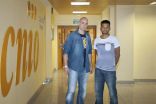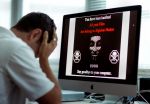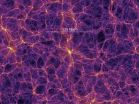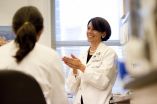(Press-News.org) Liver cancer is one of the most frequent cancers in the world, and with the worst prognosis; according to the World Health Organisation (WHO), in 2012, 745,000 deaths were registered worldwide due to this cause, a figure only surpassed by lung cancer. The most aggressive and frequent form of liver cancer is hepato-cellular carcinoma (HCC); little is known about it and there are relatively few treatment options.
Researchers from the Spanish National Cancer Research Centre (CNIO), have produced the first mouse model that faithfully reproduces the steps of human HCC development, from the appearance of the first lesions in the liver to the development of metastasis. The results, published in the prestigious journal Cancer Cell, indicate that diets rich in nicotinamide riboside, a derivative of vitamin B3, protect these mice from developing HCC in its most initial stage, when genotoxic stress is damaging cellular DNA. They also show a curative effect of the diet in those mice that had previously developed the disease.
A MOUSE MODEL FOR HUMAN HEPATIC CANCER
One obstacle to the study of human HCC is the absence of mouse models that replicate the disease, which could be used to investigate molecular pathways or new therapies. Given that human HCC is associated to alterations in hepatocytes survival, and that the URI oncogene plays a role in this process, the researchers genetically engineered mice that contained high levels of URI only in the liver, in a controlled manner over time.
At 30 weeks, the mice with high levels of URI generated sporadic tumours in the liver and even metastasis when the induction lasted longer. The study details how deficiency in nicotinamide adenine dinucleotide (NAD+), a universal compound found in living organisms that is needed to burn calories via cell metabolism, orchestrates the development of the disease.
"An increase in URI reduces cellular NAD+ and as a consequence produces genotoxic stress and DNA damage", says Nabil Djouder, leader of the study and Head of the Growth Factors, Nutrients and Cancer Group in the BBVA Foundation-CNIO Cancer Cell Biology Programme. "It is still not totally clear, however, why the deficit in NAD+ causes these lesions," he adds.
ENERGY METABOLISM AND CANCER
The appearance of DNA damage is the first link in the chain of events that activate the carcinogenic process in the liver, even before apoptosis or cell death, as has been described in the literature. "We normally say that oncogenes induce DNA damage. Now we may be able to say, more appropriately, that oncogenes induce NAD+ depletion [or deficits in NAD+] which causes DNA damage," says Djouder.
The inverse relationship between NAD+ and cancer awakened the curiosity of the researchers: could an increase in NAD+ have beneficial effects on the disease? When the scientists supplemented the diet in genetically modified mice with nicotinamide riboside, a derivative of vitamin B3 that increases intracellular levels of NAD+, they did not observe tumour development. Surprisingly, when they gave this diet to mice that had already developed the disease, the size of the tumours was reduced and they eventually disappeared.
The results have been reproduced in other types of cancer such as pancreatic cancer. "We observed the same results in mice with pancreatic adenocarcinoma with regards to DNA damage, so we could conclude that this treatment is effective on tumours caused by oncogene-induced DNA damage and thus, deficit in NAD+," says Krishna Tummala, first author of the study.
In addition to working with the mouse model, the authors have collated the results of nearly a hundred human samples. "Those from patients with HCC contain URI levels that double those of healthy samples," according to the article. The data, which also associates URI with a worse prognosis or evolution of the illness, suggests that the gene could be a possible new HCC marker, and nicotinamide riboside boosting NAD+ levels may have a human relevance.
FUTURE RESEARCH
Several epidemiological studies coincide in associating diets low in tryptophan [a NAD+ precursor] with an increased incidence of certain types of cancer. It has also been observed that daily supplements of vitamin B3 in populations with chronic nutritional deficiencies, reduces the incidence of some cancers including oesophageal cancer.
Despite the results, the researchers underline that the efficiency of NAD+ enhancing nutritional supplements to protect healthy cells from chemotoxic stress as a combined therapy in oncology still needs to be demonstrated. Djouder's team is collaborating with the CNIO Clinical Research Programme, lead by the oncologist Manuel Hidalgo to broaden these studies in mice and evaluate the possibility of carrying out clinical trials in humans in the future.
INFORMATION:
This work is the result of a multidisciplinary collaboration between the Bioinformatics and Proteomics CNIO Units, the Royal London Hospital and the University College London NHS Trust in UK. It has received funding from 'La Caixa', the Ministry of Economy and Competitiveness, Worldwide Cancer Research, and the European Foundation for the Study of Diabetes (EFSD).
Reference article:
Inhibition of De Novo NAD+ Synthesis by Oncogenic URI Causes Liver Tumorigenesis through DNA Damage. Krishna S. Tummala, Ana L. Gomes, Mahmut Yilmaz, Osvaldo Graña, Latifa Bakiri, Isabel Ruppen, Pilar Ximénez-Embún, Vinayata Sheshappanavar, Manuel Rodriguez- Justo, David G. Pisano, Erwin F. Wagner & Nabil Djouder. Cancer Cell (2014). doi: dx.doi.org/10.1016/j.ccell.2014.10.002
Mouse cells and tissues created through nuclear transfer can be rejected by the body because of a previously unknown immune response to the cell's mitochondria, according to a study in mice by researchers at the Stanford University School of Medicine and colleagues in Germany, England and at MIT.
The findings reveal a likely, but surmountable, hurdle if such therapies are ever used in humans, the researchers said.
Stem cell therapies hold vast potential for repairing organs and treating disease. The greatest hope rests on the potential of pluripotent stem cells, which ...
A recently discovered protein complex known as STING plays a crucial role in detecting the presence of tumor cells and promoting an aggressive anti-tumor response by the body's innate immune system, according to two separate studies published in the Nov. 20 issue of the journal Immunity.
The studies, both from University of Chicago-based research teams, have major implications for the growing field of cancer immunotherapy. The findings show that when activated, the STING pathway triggers a natural immune response against the tumor. This includes production of chemical ...
Say you ignored one of those "this website is not trusted" warnings and it led to your computer being hacked. How would you react? Would you:
A. Quickly shut down your computer?
B. Yank out the cables?
C. Scream in cyber terror?
For a group of college students participating in a research experiment, all of the above were true. These gut reactions (and more) happened when a trio of Brigham Young University researchers simulated hacking into study participants' personal laptops.
"A lot of them freaked out--you could hear them audibly make noises from our observation ...
November 20, 2014, Chicago, IL - A team of researchers led by Ludwig Chicago's Yang-Xin Fu and Ralph Weichselbaum has uncovered the primary signaling mechanisms and cellular interactions that drive immune responses against tumors treated with radiotherapy. Published in the current issue of Immunity, their study suggests novel strategies for boosting the effectiveness of radiotherapy, and for combining it with therapies that harness the immune system to treat cancer.
"Much of the conversation about the mechanisms by which radiation kills cancer cells has historically focused ...
BOSTON -- Epithelial ovarian cancer is the most lethal cancer of the female reproductive organs, with more than 200,000 new cases and more than 125,000 deaths each year worldwide. Because symptoms tend to be vague, 80 percent of these cancers are not recognized until the disease has advanced and spread to other parts of the body. The standard treatment for advanced ovarian cancer includes high-dose chemotherapy, which often results in debilitating side effects and for which the five-year survival rate is only 35 percent.
Now new research in an animal model finds that ...
CORVALLIS, Ore. - Researchers from Oregon State University and other institutions have developed a new biomarker called "SDMA" that can provide earlier identification of chronic kidney disease in cats, which is one of the leading causes of their death.
A new test based on this biomarker, when commercialized, should help pet owners and their veterinarians watch for this problem through periodic checkups, and treat it with diet or other therapies to help add months or years to their pet's life.
Special diets have been shown to slow the progression of this disease once ...
RIVERSIDE, Calif. - How do galaxies like our Milky Way form, and just how do they evolve? Are galaxies affected by their surrounding environment? An international team of researchers, led by astronomers at the University of California, Riverside, proposes some answers.
The researchers highlight the role of the "cosmic web" - a large-scale web-like structure comprised of galaxies - on the evolution of galaxies that took place in the distant universe, a few billion years after the Big Bang. In their paper, published Nov. 20 in the Astrophysical Journal, they present observations ...
BOSTON (Nov. 20, 2014) Investigators at Massachusetts Eye and Ear and Harvard Medical School Department of Ophthalmology and colleagues reported the development and characterization of a comprehensive genetic test for inherited eye disorders in the online version of the Nature journal Genetics In Medicine today. The Genetic Eye Disease (GEDi) test includes all of the genes known to harbor mutations that cause inherited retinal degenerations, optic atrophy and early onset glaucoma. These disorders are important causes of vision loss, and genetic treatments such as gene ...
DURHAM, N.C. -- Displaced political aides looking for a new, nonpartisan job in the wake of the midterm power shuffle may fare better if they tone down any political references on their resumes, finds a new study from Duke University.
The study found that applicants who shared the minority partisan view of voters where a resume was sent were less likely to receive a callback from an employer than a candidate with a neutral resume.
Sharing information in line with the majority partisan view didn't give candidates an advantage, however.
"Our results showed that individuals ...
A new study from UNC's Frank Porter Graham Child Development Institute (FPG) reveals that disruptions in child care negatively affect children's social development as early as age 4. However, the study also shows that the effects of child care instability are not unduly large--and some types of instability appear to have no negative impact on children.
"Our findings showed that when young children moved between child care settings, these transitions negatively affected their social adjustment," said FPG investigator Mary Bratsch-Hines. "But when children had a history ...





